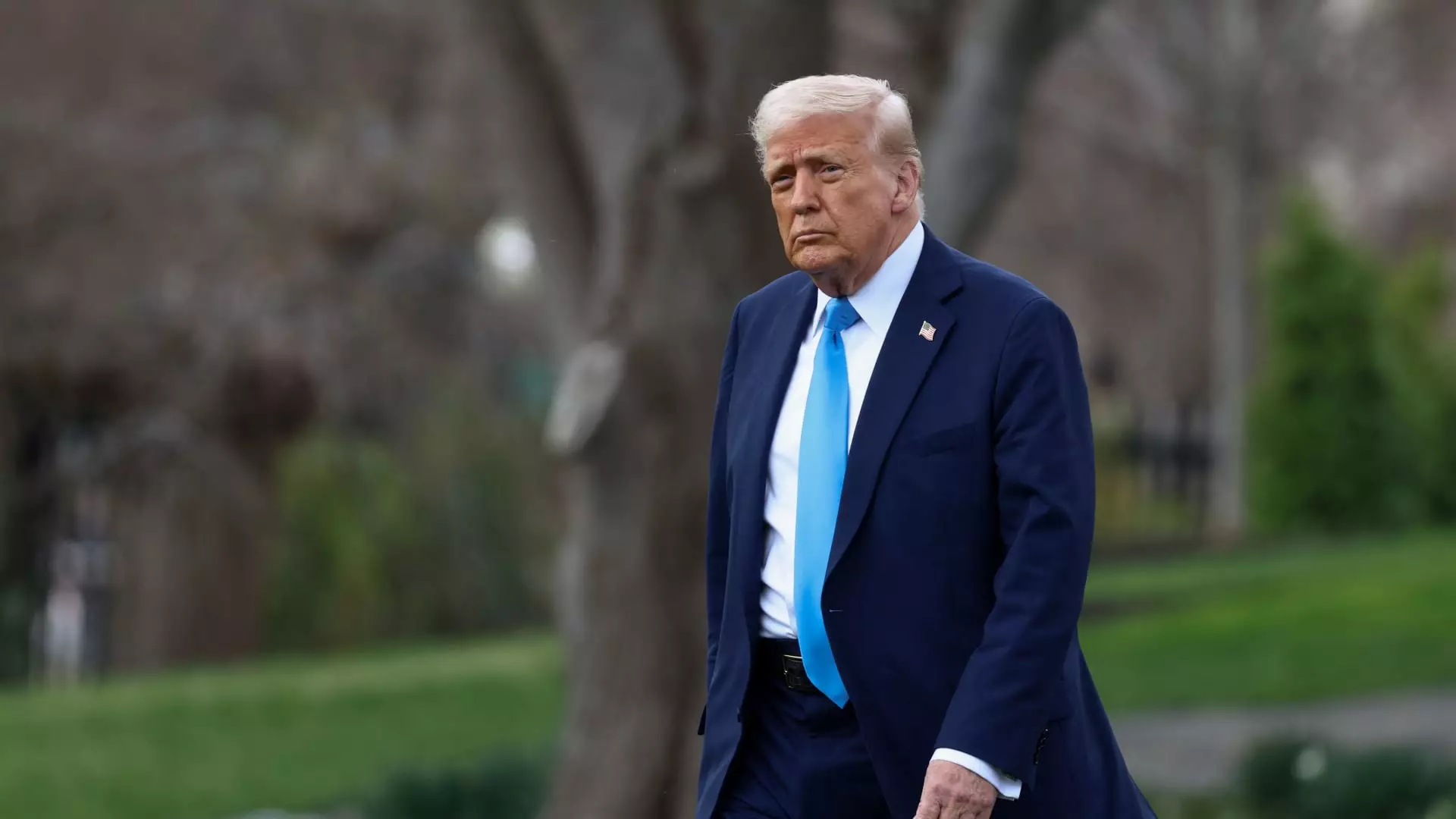In a world where political leaders adorn their ambitions with a cloak of diplomacy, Donald Trump has decided to embrace a bolder, more contentious approach. The recent exchange between Trump and Vladimir Putin regarding Ukraine signifies this trend. The former president’s explosive reactions reveal an unsettling balance, where emotional impulses often overshadow calculated foreign policy that prioritizes global stability. Trump’s declaration that he was “very angry” in response to Putin’s dismissal of Ukrainian President Volodymyr Zelenskyy’s authority exemplifies his unpredictable governance style. Furthermore, the insinuation that Putin’s remarks are “not going in the right location” raises significant questions about diplomacy’s effectiveness between the U.S. and Russia.
Trump’s foreign policy reminds us of a high-stakes poker game where gestures and bluffs can have serious ramifications. His statements regarding potential tariffs on Russian oil carry a bitter irony. They could either escalate tensions or serve as pragmatic leverage—not just for economic sanctions but also as a misguided attempt to pacify domestic critics while maintaining a seemingly cordial relationship with Putin. This teeter-totter dynamic leaves foreign policy analysts grappling with an uncomfortable reality: are we facing a president who understands the weight of his words or merely a populist who thrives on shock value?
The Gentle Tyranny of Historical Precedent
If we peer into the annals of diplomatic history, it is difficult to find an effective foreign policy style that mirrors Trump’s transactional approach. Historically, successful leaders like George H.W. Bush or Barack Obama utilized a framework that relied on multilateral cooperation and reciprocity. Trump’s insistence on unilateral tariffs and bellicose threats echoes a bygone era characterized by isolationism and defiance rather than building alliances. His observation on Zelenskyy’s management of the war may provide fleeting satisfaction to his supporters, but it neglects the stark reality that Ukraine needs staunch international backing to fend off Russian aggression.
In a move that might bewilder those who believe in diplomatic intricacies, Trump has criticized Zelenskyy, after previously claiming to prioritize an end to the war in Ukraine. This juxtaposition reveals more than inconsistency; it unveils a disturbing tendency to prioritize personal grievances over diplomatic necessities. The last thing Ukraine needs is to have its leadership undermined by U.S. rhetoric, especially when facing external threats at the hands of a government with whom we have complex geopolitical tensions.
The Cost of Irresponsible Language
The volatile rhetoric of America’s leaders carries lasting consequences. Trump’s threats against Iran for its nuclear developments represent yet another layer of this fraught foreign policy palette. His proclamation that Iran would witness “bombing the likes of which they have never seen before” borders on reckless bravado. Such statements can incite fear and retaliation, potentially spinning a web of conflict that threatens both regional and global stability. As Trump oscillates between bravado and diplomacy, one must ponder the wisdom—or lack thereof—of negotiating on such dire terms.
One must appreciate that the effectiveness of diplomacy relies heavily on the subtleties of language and tone. While proclamations can give the impression of strength, they can also undermine trust. The childish glee with which Trump often approaches serious international negotiations raises serious questions about the integrity of American leadership on the global stage. Are we to believe that bomb threats inspire cooperative dialogue? The answer, borne out by history, is a resounding no.
An Echo of Political Polarization
Trump’s remarks also reflect a broader trend of political polarization that has seeped into international relations. A “U.S. vs. Them” mentality invariably bleeds into how foreign policy is crafted. When he mentions that if Russia is at fault, “I am going to put secondary tariffs on oil,” he is not just discussing policy but fashioning a narrative of blame. This simplifies complex geopolitical issues into black-and-white, good-versus-evil dichotomies that reduce nuanced political struggles into dangerous oversimplifications.
As we look ahead, a more holistic perspective on international relations is critical. The urgency for leaders who prioritize collaboration and empathetic understanding over empty bravado and divisive language has never been more pronounced. While Trump’s confrontational methods may electrify his base, calling for genuine dialogue, cooperation, and multilateralism is an enlightened way to forge an international community capable of addressing challenges collectively rather than inciting conflict.


Leave a Reply